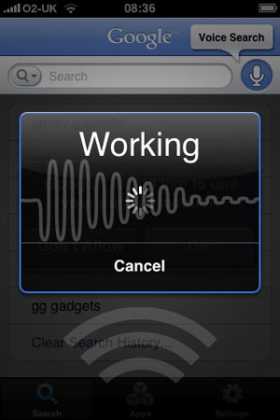 Loading...
Loading...
 Loading...
Loading...

The Internet was abuzz recently with news of Apple rejecting Google Voice for implementation on the iPhone. However the technology that Google Voice is promoting is in direct competition with telephones, so the move is not entirely surprising. The technology, known as VoIP or Voice over Internet Protocol, will affect a user’s phone bill significantly – in a good way. So is Apple really to be blamed for rejecting an app that will probably gouge a large hole right in their profit margins?
What is VoIP?
VoIP is not a new technology by any means. Most people probably use it without realizing that they are: Skype, the popular Internet chat application, uses VoIP. So does NetMeeting. Initially, voice or audio was transmitted over telephone cables and through conventional systems. Then the Internet came along, and it was able to transmit multiple kinds of data by reducing them to bits on one side, and reassembling them on the other side. Text was the first step, slowing moving toward multimedia like audio and video. Therefore the next logical step was a technology that simulated telephonic conversations by using packet-switched networks to carry the audio signals, instead of the traditional telephone lines. Thus VoIP was born.
While that was a simplified explanation of VoIP technology, the implications for a user are tremendous. Applications like Skype and NetMeeting have introduced Internet telephone calls, even going to the extent of adding video to the overall package. But true use of VoIP will come when mobile phones carry the technology. If a user has an unlimited data plan, and a VoIP-enabled phone, they can make calls on the go without being charged the usual telecommunications providers’ exorbitant fees.
Where Vonage Wins
Vonage is one of the few companies that have managed to make a success of VoIP on mobile platforms. As a matter of fact, the company has recently released two more apps for VoIP: one for the BlackBerry and the other for the iPhone. The big surprise there is that Apple accepted this app without a problem.
The apps differ very slightly from each other, but are still essentially the same. The protocol uses Wi-Fi to direct the calls and not the EDGE network. If there is no Wi-Fi signal, but the normal phone network has coverage, the app will redirect all international calls to a local US number. The user will then be charged the rates for a local call on their AT&T network. The BlackBerry app does not use Wi-Fi but the actual telecommunications signal. In addition to the implementation, an additional difference between the two apps is that the Vonage app needs to be specifically accessed on iPhones, whereas BlackBerry users will find that their calls are discounted automatically.
Google Voice Update
While everyone, including the folks at Google, was under the impression that Apple had rejected their Voice app. However, Apple became extraordinarily pious, and strove to correct the impression saying that the app hadn’t been ‘rejected’, it was currently ‘under review’.
All we say is: let’s see what happens.